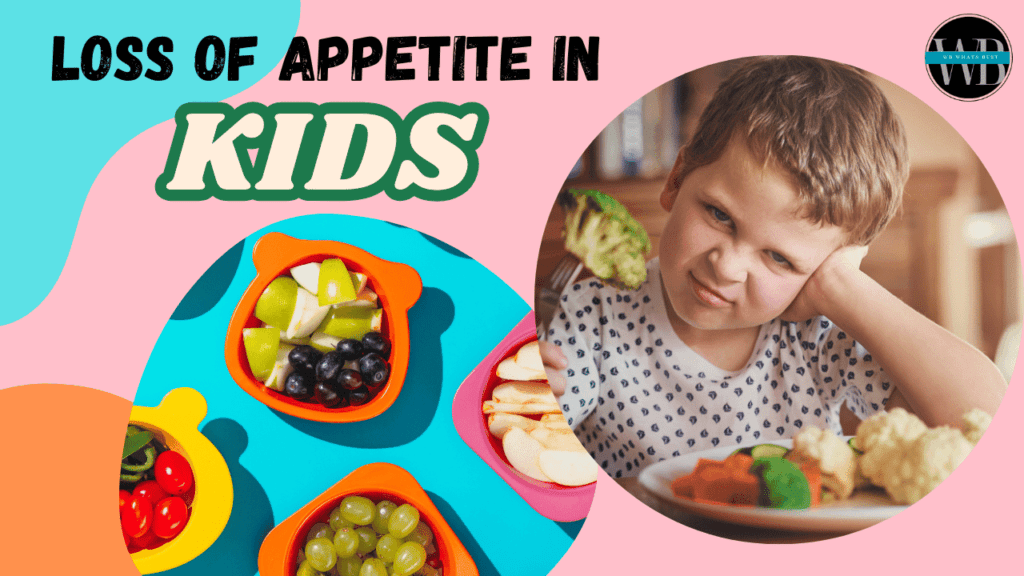
Understanding Loss of Appetite
Contents
As parents, it’s not uncommon to worry when your child suddenly loses interest in food. Loss of appetite in kids can manifest as a temporary phase or as something that lingers, leaving you puzzled. Understanding this behavior is the first step toward addressing it effectively.
What Does It Mean?
When children show a decrease in their desire to eat, it can be concerning. However, it’s essential to recognize that loss of appetite isn’t always a sign of a serious issue. It can be influenced by many factors, ranging from health to emotional well-being. Context matters, and understanding your child’s situation is key.
Is Loss of Apetite in kids Normal?
Absolutely! Fluctuations in appetite are quite normal among children. Factors like growth spurts or developmental changes can impact how much they want to eat. While it’s normal for kids to sometimes refuse food, persistent loss of appetite might indicate something more significant that requires attention.
Reasons Behind Loss of Appetite in kids
Several reasons can contribute to a child’s reluctance to eat, including:
- Illness: Common colds or stomach bugs can temporarily dampen a child’s enthusiasm for food.
- Emotional Stress: Changes like moving to a new place or starting school can create anxiety, impacting eating habits.
- Picky Eating: Many kids go through phases of being selective about food, which can reduce overall intake.
- Medications: Some medications can alter taste or reduce hunger, making mealtime a struggle.
- Diet Choices: Frequent snacking on sugary or unhealthy foods can decrease their hunger for regular meals.
- Too Many Fluids: If kids drink too much juice or milk, they might not feel hungry come mealtime.
- Nutritional Issues: Conditions like anemia can make kids feel weak and less interested in food.
- Physical Activity: A lack of movement can affect metabolism and appetite.
How Much Food Do Kids Need?
Understanding your child’s nutritional requirements can help ease concerns. Here’s a handy table outlining the average daily food needs based on age:
| Age Group | Calories | Protein (g) | Fruits (cups) | Vegetables (cups) | Grains (ounces) | Dairy (cups) |
|---|---|---|---|---|---|---|
| 1-3 years | 1,000 | 13 | 1 | 1 | 3 | 2 |
| 4-8 years | 1,200-1,400 | 19 | 1-1.5 | 1-1.5 | 4-5 | 2-2.5 |
| 9-13 years (Girls) | 1,400-1,600 | 34 | 1.5-2 | 1.5-2 | 5 | 2-3 |
| 9-13 years (Boys) | 1,600-2,000 | 34 | 1.5-2 | 1.5-2 | 5-6 | 2-3 |
| 14-18 years (Girls) | 1,800-2,400 | 46 | 2 | 2-3 | 6-8 | 3 |
| 14-18 years (Boys) | 2,200-3,200 | 52 | 2 | 2-3 | 6-10 | 3 |
Tips for Boosting Your Child’s Appetite
- Establish a Routine: Having set meal and snack times helps children anticipate food.
- Involve Them in Cooking: Getting kids involved in meal prep can make them more excited about eating.
- Introduce Variety: Pairing new foods with favorites can encourage kids to try different options.
- Make Meals Fun: Use colorful plates and fun shapes , cute forks to make food visually appealing.
- Limit Distractions: Keep screens off during meals to help kids focus on eating.
- Involve Them in Cooking: Let your child help with meal prep (you can invest in a learning tower to keep them safe while helping in kitchen). It can make them more interested in what’s for dinner!
- Limit Snacks: Keep snacks to a couple of nutritious options so they come to meals hungry.
- Serve Smaller Portions: Smaller servings can seem less overwhelming, and kids may be more willing to finish their plates.
- Dont Change Places: Do not allow them to run while having meal rather invest in a good high chair or booster chair and serve meal at a fixed place to let them concentrate only on food.
- Encourage Play: Regular physical activity can naturally boost a child’s appetite.
- Be Patient: Allow your child to listen to their own hunger cues without pressure.
What to Avoid
To support your child’s eating habits, try to avoid:
- Force-Feeding: This can lead to negative associations with food.
- Negative Comments: Avoid making critical remarks about their eating habits.
- Long Meals: Don’t make them sit at the table if they’re not interested in eating.
When to Consult a Pediatrician
If your child’s appetite doesn’t improve after a few days, or if they experience significant weight loss or other concerning symptoms, it’s time to seek professional advice. Early intervention can prevent potential health issues down the line.
- Significant weight loss or no weight gain over time.
- Persistent vomiting or gastrointestinal distress.
- Signs of dehydration, like infrequent urination.
Social Environment Matters
Remember that mealtime can be a social experience. Sharing meals as a family not only provides a sense of community but also encourages kids to model positive eating behaviors from adults.
Conclusion
While a loss of appetite in children can be concerning, it’s often a normal part of their development. By understanding the underlying causes and promoting a positive eating environment, you can help ensure your child receives the nutrition they need to grow and thrive.
FAQ
Loss of appetite in toddlers when to worry?
Loss of appetite in toddlers can be concerning, but it’s important to know when to seek help. If your child’s lack of appetite lasts more than a few days and is accompanied by symptoms like significant weight loss, persistent vomiting, dehydration signs, extreme fatigue, or behavioral changes, it’s best to consult a pediatrician. While occasional appetite fluctuations are normal, prolonged changes should be evaluated to rule out any underlying issues.
What should I do if my child refuses to eat?
Offer small portions and avoid pressuring them. Encouragement without force can help them feel more comfortable trying new foods.
How can I tell if my child is eating enough?
Look for growth patterns, energy levels, and mood stability. Regular check-ups with your pediatrician can also provide insight into their nutritional status.
What causes loss of appetite in kids?
Loss of appetite in kids can stem from various factors. Common illnesses like colds or stomach bugs often lead to temporary decreases in hunger. Additionally, children may experience changes in appetite during growth spurts or due to emotional factors such as stress or anxiety. Picky eating is also common, as many kids go through phases of being selective with their food. Lastly, certain medications can impact appetite. Identifying the root cause can help parents address the issue effectively.
how to treat food aversion in babies?
Food aversion in babies can often be addressed by introducing new foods gradually and repeatedly, offering small, manageable portions, and ensuring a positive, relaxed mealtime environment. Avoid force-feeding, as it may create negative associations with food. Be patient and consistent, and try presenting food in fun shapes or different textures to pique their interest. It’s also helpful to eat together as a family to model healthy eating habits. If the aversion persists or affects your baby’s growth, consult a pediatrician for further guidance.

1 thought on “Loss of Appetite in Kids: A Parent’s Urgent Guide”